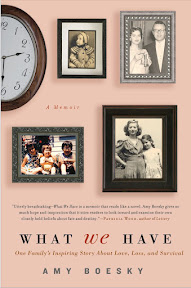 It is my first morning of high school. I have seven new books, a skirt I hate, and a stomachache. [1st paragraph of Speak]
It is my first morning of high school. I have seven new books, a skirt I hate, and a stomachache. [1st paragraph of Speak]Speak by Laurie Halse Anderson
Penguin, 1999
Fiction (YA); 198 pgs
This is Banned Books Week. It is a week designed to bring attention to the many books that are challenged and banned; the books that some people would attempt to silence because they may offend or cause discomfort. I have strong feelings against censorship and wanted to join in this year's celebration of our freedom to read what we want to read.
Last week Twitter was all a buzz with the news that yet another person is seeking to ban Laurie Halse Anderson's Speak. Something about a rape scene and an attempted rape scene being soft porn. Also, the unfavorable light the authority figures (parents and school staff) were painted in. Tell me I shouldn't read something, and I only grow more curious to see for myself.
That isn't the only reason I decided to read Speak in honor of Banned Book Week, however. It seems a fitting choice. Censorship is the silencing of voices. And wanting to ban a book like Speak is like trying to silence the voices of many teenagers who find themselves in similar situations as Speak's protagonist, Melinda Sordino.
Melinda is a freshman in high school, ostracized by her friends and peers because she called the police at a summer end party. She keeps the real reason she called the police a secret, feeling ashamed and as if no one would believe her. Melinda was raped by a senior. An outcast, Melinda has a difficult time adjusting to high school after what happened. She is afraid to speak about what happened and often refuses to speak at all. She falls into a depression and those who care about her are at a loss as to what to do. They do not understand what she is going through.
I have read more intense novels on the subject of rape and depression and found this one not quite as much so in comparison. I guess that is what surprises me most about the fact that this book was singled out for censorship. Just the same, Speak is a powerful novel and one I would encourage parents and teens to read. The author tells the story from Melinda's viewpoint and captures perfectly the voice of her teen protagonist. Melinda feels alone and isolated. She has no friends and little support. Her parents are always too busy, wrapped up in their own issues. She doesn't feel she has anyone to turn to. My heart went out to Melinda and, in many ways, I could relate to her. Her desire to forget; her hope that not speaking about it would help her forget; and the depression that came with it.
It's not something I ever talk about. It's like a dark secret that I keep hidden away. I don't know exactly why. Not anymore. I have come to terms with it as best one can. I take pride in the fact that I am not so much a victim, but a survivor. And yet. I don't talk about it. Until now.
I was sexually abused when I was six years old by a babysitter. The details don't matter. I knew it was wrong at the time, and even told me parents. Sort of. What I told them was that he "wanted to". My parents, in their innocence, told me that they hoped I said no. Their response was enough to silence me. I had done something wrong.
We moved. I never saw him again.
The chronological order of events during the next seven years are fuzzy. I remember bursting into tears when a particular song came on the radio at my uncle's house. We both loved Bruce Springsteen, but the words of the song, struck me cold--still do. For years, I had to leave the room or turn the radio off when the song came on. I would start shaking when I heard it, sometimes cry. I may have told my mother then what happened. I'm not sure. Whatever I did say to explain away my sudden sobs didn't really help.
Then there was a slumber party. It wasn't a big party. Just three of us. I told my friends what happened. I will forever be grateful to them for speaking out for me. They did not just sit on the information or forget about it. They talked to a school counselor who in turn spoke with me. It was a freeing moment and yet also a very scary one. I was finally able to deal with it in the open.
My parents were told. They didn't understand. I was told to put it behind me and move on. And as part of me struggled with the fact that it wasn't that simple, to just be able to get over it, the other half felt exactly that. Why couldn't I? More reason to feel ashamed.
I don't blame my parents in any way. It wasn't something they ever imagined they would have to deal with nor did they know how to react. They fell back on what they knew and went from there. In a way, they were victims too.
I blamed myself for many years. If I'd just said no. How stupid would someone have to be to let something like that happen without putting up much of a fight? That's what I believed for a long time.
I went to therapy. Joined a support group. I read; I wrote; I had long conversations with God. I played scenarios in my head about confronting the guy. I carried a photo of myself at the age of 6 to remind myself that a girl that young could not be to blame for what happened to her. Somewhere along the way, I discovered that I actually was worth it--worth caring about and loving. It took me a while, but I eventually found a confidence and strength I didn't know I had. And I realized that he no longer had power over me.
To say "I'm over it" would be a bold faced lie. Can anyone truly be over that kind of experience? Sure, I have moved on in many ways. I now know it wasn't my fault. I no longer feel the shame. And yet, I don't ever talk about it. It will always be a shadow in the past, affecting me in the slightest of ways. There is a stigma associated with being a victim, one that is not so easy to shake.
I may not have been a victim of rape like Melinda was, but I do know the pain of living in near silence, of the stigma, self-doubt and blame that goes along with it. It's a terrible weight to carry. One that in the perfect world would never have to be carried because sexual assault of any kind would not exist.
Society doesn't exactly make it easy for victims of rape or abuse to speak out. I do think that there is an effort out there to change such backwards thinking, but it has a long way to go. Authors like Laurie Halse Anderson are helping to make that change one book at a time, and their voices should not be silenced. Girls and boys who have been victims of sexual assault need to be heard--and, as cliche as it sounds, to know they are not alone.
Penguin, 1999
Fiction (YA); 198 pgs
This is Banned Books Week. It is a week designed to bring attention to the many books that are challenged and banned; the books that some people would attempt to silence because they may offend or cause discomfort. I have strong feelings against censorship and wanted to join in this year's celebration of our freedom to read what we want to read.
Last week Twitter was all a buzz with the news that yet another person is seeking to ban Laurie Halse Anderson's Speak. Something about a rape scene and an attempted rape scene being soft porn. Also, the unfavorable light the authority figures (parents and school staff) were painted in. Tell me I shouldn't read something, and I only grow more curious to see for myself.
That isn't the only reason I decided to read Speak in honor of Banned Book Week, however. It seems a fitting choice. Censorship is the silencing of voices. And wanting to ban a book like Speak is like trying to silence the voices of many teenagers who find themselves in similar situations as Speak's protagonist, Melinda Sordino.
Melinda is a freshman in high school, ostracized by her friends and peers because she called the police at a summer end party. She keeps the real reason she called the police a secret, feeling ashamed and as if no one would believe her. Melinda was raped by a senior. An outcast, Melinda has a difficult time adjusting to high school after what happened. She is afraid to speak about what happened and often refuses to speak at all. She falls into a depression and those who care about her are at a loss as to what to do. They do not understand what she is going through.
I have read more intense novels on the subject of rape and depression and found this one not quite as much so in comparison. I guess that is what surprises me most about the fact that this book was singled out for censorship. Just the same, Speak is a powerful novel and one I would encourage parents and teens to read. The author tells the story from Melinda's viewpoint and captures perfectly the voice of her teen protagonist. Melinda feels alone and isolated. She has no friends and little support. Her parents are always too busy, wrapped up in their own issues. She doesn't feel she has anyone to turn to. My heart went out to Melinda and, in many ways, I could relate to her. Her desire to forget; her hope that not speaking about it would help her forget; and the depression that came with it.
It's not something I ever talk about. It's like a dark secret that I keep hidden away. I don't know exactly why. Not anymore. I have come to terms with it as best one can. I take pride in the fact that I am not so much a victim, but a survivor. And yet. I don't talk about it. Until now.
I was sexually abused when I was six years old by a babysitter. The details don't matter. I knew it was wrong at the time, and even told me parents. Sort of. What I told them was that he "wanted to". My parents, in their innocence, told me that they hoped I said no. Their response was enough to silence me. I had done something wrong.
We moved. I never saw him again.
The chronological order of events during the next seven years are fuzzy. I remember bursting into tears when a particular song came on the radio at my uncle's house. We both loved Bruce Springsteen, but the words of the song, struck me cold--still do. For years, I had to leave the room or turn the radio off when the song came on. I would start shaking when I heard it, sometimes cry. I may have told my mother then what happened. I'm not sure. Whatever I did say to explain away my sudden sobs didn't really help.
Then there was a slumber party. It wasn't a big party. Just three of us. I told my friends what happened. I will forever be grateful to them for speaking out for me. They did not just sit on the information or forget about it. They talked to a school counselor who in turn spoke with me. It was a freeing moment and yet also a very scary one. I was finally able to deal with it in the open.
My parents were told. They didn't understand. I was told to put it behind me and move on. And as part of me struggled with the fact that it wasn't that simple, to just be able to get over it, the other half felt exactly that. Why couldn't I? More reason to feel ashamed.
I don't blame my parents in any way. It wasn't something they ever imagined they would have to deal with nor did they know how to react. They fell back on what they knew and went from there. In a way, they were victims too.
I blamed myself for many years. If I'd just said no. How stupid would someone have to be to let something like that happen without putting up much of a fight? That's what I believed for a long time.
I went to therapy. Joined a support group. I read; I wrote; I had long conversations with God. I played scenarios in my head about confronting the guy. I carried a photo of myself at the age of 6 to remind myself that a girl that young could not be to blame for what happened to her. Somewhere along the way, I discovered that I actually was worth it--worth caring about and loving. It took me a while, but I eventually found a confidence and strength I didn't know I had. And I realized that he no longer had power over me.
To say "I'm over it" would be a bold faced lie. Can anyone truly be over that kind of experience? Sure, I have moved on in many ways. I now know it wasn't my fault. I no longer feel the shame. And yet, I don't ever talk about it. It will always be a shadow in the past, affecting me in the slightest of ways. There is a stigma associated with being a victim, one that is not so easy to shake.
I may not have been a victim of rape like Melinda was, but I do know the pain of living in near silence, of the stigma, self-doubt and blame that goes along with it. It's a terrible weight to carry. One that in the perfect world would never have to be carried because sexual assault of any kind would not exist.
Society doesn't exactly make it easy for victims of rape or abuse to speak out. I do think that there is an effort out there to change such backwards thinking, but it has a long way to go. Authors like Laurie Halse Anderson are helping to make that change one book at a time, and their voices should not be silenced. Girls and boys who have been victims of sexual assault need to be heard--and, as cliche as it sounds, to know they are not alone.
Most censorship I see is fear-driven. I respect that. The world is a very scary place. It is a terrifying place in which to raise children, and in particular, teenagers. It is human nature to nurture and protect children as they grow into adulthood. But censoring books that deal with difficult, adolescent issues does not protect anybody. Quite the opposite. It leaves kids in darkness and makes them vulnerable. [excerpt from statement by Laurie Halse Anderson about censorship, included at end of Speak]
Books have been my friends through many ups and downs, helped me to see the world through different eyes as well as take a closer look at my own life. We can learn so much from books, find reassurance and hope. We are able to face new challenges and view the world from many different angles. Books give us that and so much more.
© 2010, Wendy Runyon of Musings of a Bookish Kitty. All Rights Reserved.If you're reading this on a site other than Musings of a Bookish Kitty or Wendy's feed, be aware that this post has been stolen and is used without permission.





















